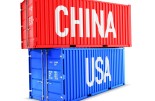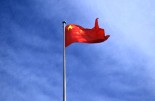Bob Homan: Trump, ‘the nation builder’
Bob Homan: Trump, ‘the nation builder’

This column was originally written in Dutch. This is an English translation.
By Bob Homan, Head of ING Investment Office
US trade restrictions are giving Chinese the spirit, energy and government support to accelerate their technological development. Thus, Donald Trump is inadvertently building China's economy.
When I asked a Chinese-speaking colleague last week about the economic sentiment in China, his impression was that it was predominantly positive. That did not surprise me. Previous surveys show that while around 80% of consumers in Europe and the US consider trade barriers – such as export restrictions and import tariffs – to be harmful to the economy, in emerging Asia, 80% of consumers believe that such measures benefit their economy. A striking contrast.
The same colleague told me that Donald Trump is often referred to in China as ‘the nation builder’. By this they do not mean that he is making America great. On the contrary, his policies are strengthening the Chinese economy.
Export restrictions make the Chinese more ingenious
Nvidia CEO Jensen Huang recently aptly described the consequences of the export restrictions on high-tech products, including Nvidia chips, imposed by President Biden. According to Huang, Chinese companies that no longer had access to American technology turned en masse to domestic alternatives, such as Huawei. These restrictions have actually encouraged them to make technological advances with minimal foreign assistance.
“The local companies are very talented and determined,” said Huang. “The export controls gave them the spirit, energy, and government support to accelerate their development.” In other words, export restrictions intended to slow down another country's technological development can backfire. US companies lose market share that they are unlikely to regain. The Trump administration has now also recognized that such measures are of limited effectiveness and has reversed some restrictions.
Import duties boost domestic consumption
A similar effect can occur with import tariffs. China has a significant trade surplus with the rest of the world, particularly with the US. Import tariffs are likely to reduce that surplus, but it is unlikely that Chinese exports to the US will come to a complete standstill.
However, China will try to sell its surplus production elsewhere. Since other markets are not eager to buy it either, China will be forced to further stimulate domestic consumption. Given the high savings rate among Chinese households, there is sufficient scope for this. Import tariffs – provided they are not excessive – can therefore contribute to the further development of the Chinese economy and reduce its dependence on exports.
This does not necessarily have to be detrimental to US companies (unlike export restrictions). From this perspective, I understand why Chinese consumers generally view trade restrictions, including import tariffs, as positive and refer to Trump as ‘the nation builder’. This is also a reason to remain positive about the outlook for the Chinese stock market.





